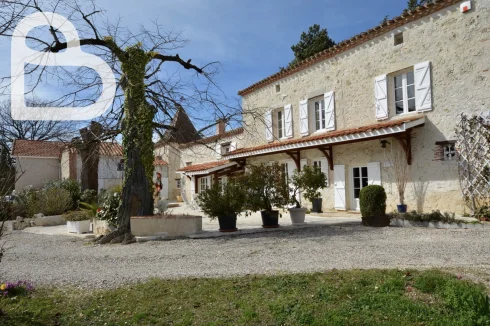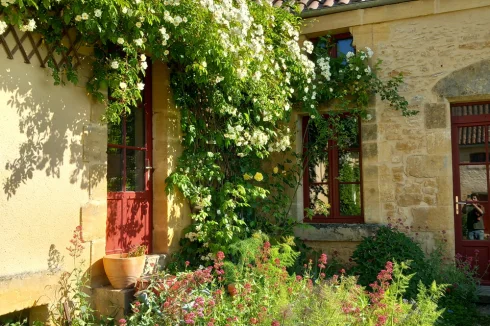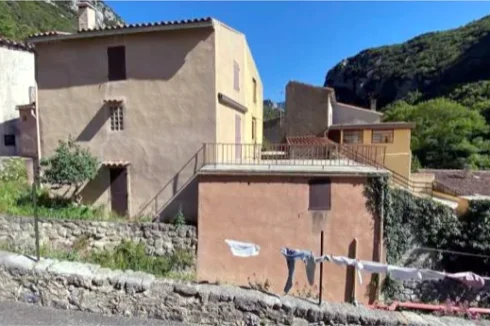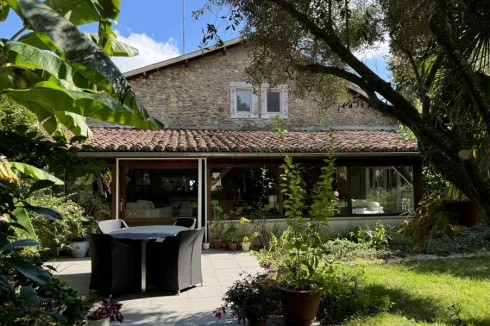The Cryptic World of French Notaire Fees
Wednesday 11 March 2020
Only code-breakers could probably fully understand the fee structure operated by French notaires, so the risk of being overcharged should not be under-estimated.
Most readers will be aware of the central role of the French notaire in property conveyancing, although fewer will recognise them as the de facto family legal advisor.
This is because, in addition to property conveyancing, notaires also act in inheritance procedures, marriage contracts, wills, divorce settlements, letting of property, business affairs, and gift procedures.
Notaires have a legal monopoly in the exercise of some of these responsibilities, but they are not salaried employees of the French government.
Instead, French notaires have a rather peculiar hybrid legal status; on the one hand a quasi-government official and on the other, an independent legal advisor.
They earn their income entirely through the fees they charge for their services.
In most matters, you will find that the fees charged by a notaire are regulated by the government. However, just because they are regulated does not necessarily mean they are inexpensive.
Where they are regulated, the notaire is not permitted to charge a higher price, under any circustances, as set out in Article R444-3 of the Code de Commerce, which states:
I.-Il est interdit aux professionnels mentionnés au premier alinéa de l'article L. 444-1 de demander ou de percevoir en raison des prestations soumises aux tarifs une somme autre que celles fixées par ces tarifs.
II.-Il leur est également interdit de demander ou de percevoir en raison des prestations mentionnées au troisième alinéa de l'article L. 444-1 une somme en dehors des honoraires stipulés dans la convention d'honoraires prévue par ce texte.
Since 1st March 2020 (or 1st May, as the March date is contested by notaires), for new cases, lower regulated fees have been introduced by the government, but the reduction averages only 2%. Any reduction in the fee rate received by notaires has been more than compensated by the increase in recent years of capital values on property, on which most of their fees are based. Neither does it compensate for the increase in stamp duty that occurred in 2015.
The regulated fees earned by notaires are charged either on the basis of a percentage of the capital sum in the agreement, or simply as a fixed sum, irrespective of the value of the transaction.
Fixed Percentage Charge
Those fees charged as a percentage of capital are called ‘émoluments proportionnels’.
There is no single percentage charge that is applied to all transactions, but rather two scales (called Séries S1 and S2) for different types of services and transaction values.
The higher the capital value of the transaction the lower the percentage rate that is used. That is simple enough, except that for each type of service, the percentage rate is then multiplied by a coefficient, which varies according to the type of service being provided!
The most common scale in use is that for the sale and purchase of property. This scale is S1, with a coefficient of 1, which broadly equates to 1% of the value of the transaction. Gifts between man and wife are also scale S1, but with a coefficient of 2/3rds of the percentage rate!
Other percentage scale fees apply in relation to inheritance, mortgages, auction sales, and gift procedures between other people. Depending on the amount of capital involved, the fees for such work can run into several thousand euros, although as a general rule many of the tasks have a modest charge. Sadly, many people pay over the odds for work, either because they are being overcharged, or that unecessary work is being carried out.
Fixed Sum
Where the work being carried out by a notaire has no capital value, and in certain other limited cases where capital is involved, the fees are a fixed sum.
Examples of such services are a civil partnership agreement, a marriage contract (excluding transfer of assets), a tenancy agreement, a Will, inventory, or power of attorney. The charges for such services should not exceed a few hundred euros, and should often be less.
Nevertheless, as we have previously pointed out, charges by notaires for a marriage contract (often entered into by expatriates for inheritance purposes), can vary widely, despite the fact that the official charge is regulated and modest.
In addition to the basic fixed fee, there are also other formalities that notaires often need to undertake, for which an additional fixed fee is payable. These fees are called ‘émoluments de formalité’. The sums are relatively minor, but should be itemised on the final statement.
Moreover, a notaire is not permitted to charge a fee for the preparation of a sale and purchase contract (compromis de vente), as was confirmed by a government parliamentary statement:
'La garde des sceaux, ministre de la justice a fait connaître à l'honorable parlementaire que l'avant-contrat de vente n'est plus rémunéré lorsqu'il est réalisé par un notaire. En effet, les notaires établissent l'acte authentique de vente. De ce fait, il est apparu conforme à l'intérêt des parties à l'acte de vente de ne rémunérer que celui-ci.'
'Notaire fees’ should not be confused with the taxes that are also payable with the fees on the purchase of property, as well as in other transactions.
Freely Negotiated Fees
Beyond these regulated services and their tariffs, notaires are also able to charge for other services, for which they are free to set their own charges.
These charges are called ‘honoraires libres’.
Services for which notaires can set their own charge include the formalities in relation to the sale of a business, landlord and tenant disputes, property valuation, or other specialist legal advice.
In the case of ‘specialist legal advice’, do not assume that an additional fee for advice given to you during the process of a regulated fee service is payable. The notaire is legally obliged to provide such advice at no additional cost.
Nevertheless, you may well find that as part of a service the final fee charged by the notaire is a mix of a percentage fee, fixed rate fee and a freely negotiated fee. Some regulated services contain both a percentage and fixed fee, e.g. a gift between man and wife.
Whatever the type of fee, it will be subject to VAT at the rate of 20%.
Estimates/Statements
If a notaire provides what they consider to be advice or assistance beyond that ordinarily required, and you are charged a freely negotiated fee, they are obliged to provide you with a written estimate of the cost of their services, or at least the means by which the fee will be determined, if a fixed fee cannot be offered at the outset. A notaire cannot simply surprise you with a demand for payment of their fees, without any prior written warning.
As a result of recent changes in the law, on large transactions, such as property sales, the fee is negotiable, up to 20% on any portion of the transaction above €100,000
All of the charges should be detailed in the final statement that must be provided to the client. However, getting to grips with interpreting it all is no easy task. If in doubt, do not be intimidated, and ask the notaire's office for an explanation. In addition, there are frequently delays in receipt of a final statement, although in fairness to the notaires this is rarely due to their own tardiness, but delays in obtaining final figures from the land registry.
Whether a regulated or freely negotiated fee, a notaire is not entitled to take an advance of their fees, although they can take a small sum for disbursements.
In practice, in relation to a house purchase, the fees are deposited with the notaire together with the proceeds for the purchase. As fees for house purchase are fairly clear and regulated, you should not have too much to worry about with this practice, although you would be advised to seek clarity about the estimated bill for fees (and taxes) at the time you sign the sale and purchase contract.
Disputes
Given the lack of transparency of notaires fees, it is sometimes difficult to establish whether or not you have been overcharged, either inadvertently, or deliberately.
The risk is not only that the fee structure is incomprehensible, but that you may be paying for a service that you do not require. There are sometimes different ways of achieving an objective, to which different fees will apply.
This is why it is so important to discuss the fees at the outset so the potential for dispute is kept to a minimum.
You might also want to consider going to several notaires to obtain an estimate of their fee. Indeed, by doing so, you can also assess the quality of the advice you may be given.
If you receive a bill from a notaire with which you do not agree, then you should ask for an explanation. If the response does not satisfy you, then you need to set out your complaint in a recorded delivery letter to the notaire.
In the event that you remain dissatisfied with their response then you should take the matter up with the disciplinary body of the notaires, called the Chambre des notaires. There is a Chambre in each department of France.
You can also refer the matter to an independent Médiateur, a potentially more fruitful course of action to take.
If you remain dissatisfied then you would need to take the matter to a court of law. Court hearings concerning a dispute between notaires and their clients are not uncommon, and clients frequently obtain a judgement in their favour, although there are significant delays and costs involved.
Thank you for showing an interest in our News section.
Our News section is no longer being published although our catalogue of articles remains in place.
If you found our News useful, please have a look at France Insider, our subscription based News service with in-depth analysis, or our authoritative Guides to France.
If you require advice and assistance with the purchase of French property and moving to France, then take a look at the France Insider Property Clinic.





